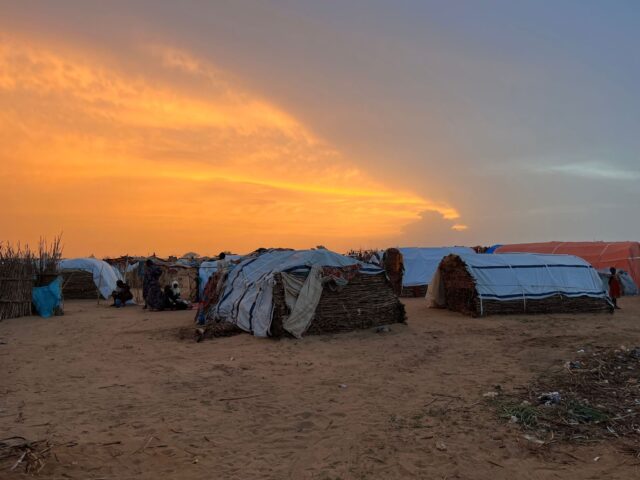As conflict in Sudan escalates, it is becoming clear that the Rapid Support Forces has returned to Darfur to complete the genocide it began 20 years ago. The RSF is the Janjaweed rebranded, the “devils on horseback” used by the Sudanese government from 2003 to implement widespread and systematic crimes against non-Arab communities across Darfur. The RSF was, and still is, commanded by Gen Mohamed Hamdan “Hemedti” Dagalo.
Two decades ago, Darfur became synonymous with genocide and war crimes, particularly by the notorious Janjaweed Arab militias against populations that identify as Central or East African. Fears are mounting that that legacy is returning with reports of widespread killings, rapes and destruction of villages in Darfur amid a nationwide power struggle between Sudan’s military and a powerful paramilitary group called the Rapid Support Forces.
Yale University’s Conflict Observatory, which uses a combination of satellite imagery, Nasa thermal-detection data and open-source analysis, found evidence of the “targeted destruction of at least 26 communities” by the RSF between 15 April and 10 July. Mass graves have been discovered, and satellite imagery shows entire urban neighbourhoods and villages have been burned down.
Sexual violence is once again an evident component of RSF strategy. Facilities necessary for survival are being deliberately destroyed, from homes, schools and hospitals to water, electricity and communications infrastructure.
Fighting erupted in the capital, Khartoum, in mid-April between the military and the RSF after years of growing tensions. It spread to other parts of the country, but in Darfur it took on a different form -– brutal attacks by the RSF and its allied Arab militias on civilians, survivors and rights workers say.
During the second week of fighting in Khartoum, the RSF and militias stormed Geneina, the capital of West Darfur state, located near the Chad border. In that and two other assaults since, the fighters went on a rampage of burning and killing that reduced large parts of the city of more than half a million people to wreckage, according to videos shared by activists.
“What happened in Geneina is indescribable,” said Sultan Saad Abdel-Rahman Bahr, the leader of the Dar Masalit sultanate, which represents Darfur’s Masalit ethnic community. “Everywhere (in the city) there was a massacre. All was planned and systemic.”
The sultanate said in a report that more than 5,000 people were killed and 8,000 others were wounded in Geneina alone in attacks by the RSF and Arab militias between April 24 and June 12.
The report detailed three main waves of attacks on Geneina and surrounding areas in April, May, and June, which it said aimed at “ethnically cleansing and committing genocide against African civilians.”
The RSF was born out of the Janjaweed militias that during the conflict in the 2000s were accused of mass killings, rapes and other atrocities against Darfur’s African communities. Former President Omar al-Bashir later formed the RSF out of Janjaweed fighters and put it under the command of Gen. Mohammed Hamdan Dagalo, who hails from Darfur’s Arab Rizeigat tribe.
On July 13, the U.N. Human Rights Office said a mass grave was found outside Geneina with at least 87 bodies, citing credible information. The international group Human Rights Watch said it also documented atrocities including summary executions and mass graves in Misterei.
The RSF appears to be taking advantage of an international response to the crisis that is prioritising resolution between the warring generals – Hemedti and Abdel Fattah al-Burhan, head of Sudan’s armed forces – but so far is proving unable or unwilling to respond to the mass violence being unleashed across Darfur.
From the second world war and the Holocaust to the wars of Yugoslav succession and genocide against Bosnia’s Muslims, this deeply flawed assumption that ending armed conflict will also end campaigns of identity-based mass violence has meant catastrophic failures to protect vulnerable people and prevent massive losses of life. Failure to acknowledge these distinctions in Sudan will likewise be devastating for Darfur.










